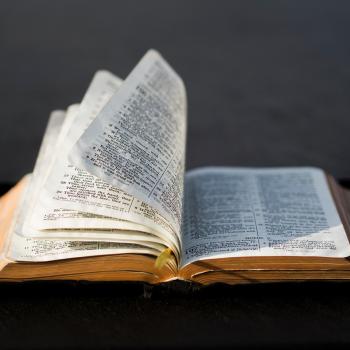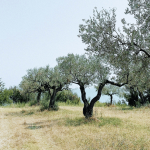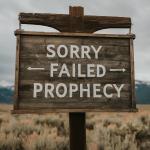Does Shane MacGowan reveal his Christianity in his lyrics?
When the news came last November that Irish singer/songwriter Shane MacGowan had died after fighting an infection for several months, it was a sad day for Irish music fans and especially for fans of the brand of Irish music typified by the Pogues, the popular band partially founded by MacGowan.
Shane had been expected to make it home for Christmas, which would have been his 66th birthday, but it was not to be.

What was my reaction?
I am not as knowledgeable of Irish music as are some of my family and friends but I was really pulling for Shane.
I had two gut reactions: to write poems or song lyrics commemorating Shane’s life and work and to determine if evidence of the details of Shane’s Christianity could be extrapolated from his lyrics.
I quickly saw that no article of this length could adequately encompass a study of all his lyrics, I would first concentrate on one specific song, the one that, by its title alone, should reveal what I was looking for.
Why pick this one?
If I Should Fall From Grace With God, by its title alone, makes it a great candidate and possibly the best one, based on Shane’s passing.
It is about death, the death of the song’s narrator. Our task is to determine how much of the narrator’s beliefs and fears are attributable to the songwriter.
Shane MacGowan’s life was lived out in public and his human weaknesses were on public display during his lifetime. I think of him somewhat like I think of another great songwriter, Townes Van Zandt. Both men died as a result of the way they lived. Living killed them both.
How do we analyze these lyrics?
First of all, we have to know the theological meaning of the terms we are using. In the title, we find the term “grace.” In order to understand a theology, we need to understand the language it uses.
What is “grace?”
The Oxford Companion to the Bible defines “grace” as:
“the undeserved gift that creates relationships and the sustaining, responding, forbearing attitude-plus-action that nurtures relationships.”
The internet website Christianity.com defines “grace” as:
“undeserved merit.”…”There is absolutely nothing we can do to earn this grace. It is given to us as a completely free gift, even though we do not deserve it. Rightly appreciated, grace is an inspiration to us to do better, to seek God’s will, and to live a righteous life.”
“Grace,” then, is the gift of merit or benefit or goodness given to us even though we have done nothing to deserve the gift. It is given freely and presumably, with love.
Where does “grace” come from?
The Oxford Companion to the Bible (1993, pp 260-261) outlines verses from the Bible that discuss the grace offered by God in Jewish and Christian theologies, citing Psalms 37:21 and Psalm 26 as examples. The Oxford Companion discusses the concept of God’s grace at length and provides several more examples of the discussions in both the Hebrew Bible and the new Testament.
How can one “fall from grace with God?”
The Free Dictionary states (“fall from grace,” not specifically theological):
“To experience a major reduction in status or prestige.”
Merriam-Webster states:
Definition of fall from grace as in trespass:
to commit an offense, trespass, fall, wander, sin, stray, offend…
The Oxford Companion to the Bible defines “fall” in relation to the fall of Adam in the Book of Genesis.
The “fall” of Adam (it states) is credited by some of the Bible’s authors as a fall that would make us all weak and subject to the beguilement of talking snakes. Saul, the epistle writer, believed that Adam’s fall introduced sin and death. It was the basis for St. Augustine’s doctrine of original sin developed in the 5th century CE.
We see that a “fall from grace with God” would be a fall by a man (or woman) based on his or her disobedience to God’s commandments.

Where does this fit into Christian theology?
We could cite Christian theologians and Biblical historians but I believe we can find a clearer path to Shane MacGowan’s Christianity by examining what the Bible itself says Jesus believed.
While there are passages in the gospels that make Jesus’s own theology less than clear, his teachings about pour behavior and its consequences can be found in the New Testament, Matthew 19:16-26 (ESV).
16 And behold, a man came up to him, saying, “Teacher, what good deed must I do to have eternal life?” 17 And he said to him, “Why do you ask me about what is good? There is only one who is good. If you would enter life, keep the commandments.” 18 He said to him, “Which ones?” And Jesus said, “You shall not murder, You shall not commit adultery, You shall not steal, You shall not bear false witness, 19 Honor your father and mother, and, You shall love your neighbor as yourself.” 20 The young man said to him, “All these I have kept. What do I still lack?” 21 Jesus said to him, “If you would be perfect, go, sell what you possess and give to the poor, and you will have treasure in heaven; and come, follow me.” 22 When the young man heard this he went away sorrowful, for he had great possessions.
A follower of Jesus receives salvation by 1. keeping specific commandments and 2. by sacrificing one’s possessions to benefit the poor.
This salvation comes from grace. In this theology, all humans will fall short and will require “grace” or undeserved blessing to achieve salvation.

What did this reveal about Shane MacGowan’s personal theology?
To my knowledge, Shane MacGowan did not make a definitive statement of his theology. Few people do. We are concerned here with whether the lyrics to this powerful song reveal anything about his beliefs.
If I should fall from grace with God
Where no doctor can relieve me
If I’m buried in the sod
But the angels won’t receive meLet me go, boys, let me go, boys
Let me go down in the mud, where the rivers all run dryThis land was always ours
It was the proud land of our fathers
It belongs to us and them
Not to any of the othersLet them go, boys, let them go, boys
Let them go down in the mud, where the rivers all run dryBury me at sea
Where no murdered ghost can haunt me
If I rock upon the waves
And no corpse can lie upon meLet me go, boys, let me go, boys
Let me go down in the mud, where the rivers all run dryIf I should fall from grace with God
Where no doctor can relieve me
If I’m buried in the sand
But the angels won’t receive meLet me go, boys, let me go, boys
Let me go down in the mud, where the rivers all run drySongwriter: Shane Patrick Lysaght MacGowan
As with many songs by well known writers, there is no lack of interpretations.
American Songwriter
American Songwriter‘s Jacob Uitti asserts:
The beautiful and bountiful land of Ireland is known for many things, from Guinness to rock and roll music. But it’s also known for its religious faith. Here, in “If I Should Fall from Grace with God,” MacGowan seemingly weaves all together in this song that gets your heart pounding like a shot of adrenaline.
The song is much like a rock and roll prayer, delivered from the pulpit of the pub. Released in 1988 on the LP of the same name, it is one of the group’s most successful songs, along with the track, “Fairytale of New York.” Peaking at No. 58 on the U.K. Singles Chart, “If I Should Fall from Grace with God” was a request of remembrance and service from the singer to his best mates.
Here, the critic acknowledges the religious thematic materials but does not make conclusions about the faith of the songwriter.
Songmeanings.com
A critic, writing for the internet website, Songmeanings.com, in 2011, long before MacGowan’s death, made a pretty sweeping interpretation that involves not only the songwriter and the song’s narrator, but the entire Roman Catholic Church:
If I should fall from grace with God Where no doctor can relieve me If I’m buried ‘neath the sod But the angels won’t receive me
(this is saying that if Ireland is coerced away from the Catholic Church, the heavens won’t receive them – it has to do with the Protestant Reformation and England’s penal laws – when England committed genocide on the Irish in the 1640s. Of 1.6M, the English killed 600K Irish and sent another 300K abroad as slaves – mostly to America.
Let me go down in the mud Where the rivers all run dry (if we fall from grace, then there’s no salvation – we simply die and the rivers run dry aka the after life is void)
This land was always ours Was the proud land of our fathers It belongs to us and them Not to any of the others
(refers to the English invasion & colonization of “NORTHERN IRELAND.” You know – occupation. The English forced Scottish salves – after committing the same genocide there and taking over its country – into NORTHERN IRELAND. The land of OUR fathers belongs to us, by way of our fathers and belongs to no other. Like Scott-Irish who are still beholden to the UK – unlike the rest of Ireland)
Bury me at sea Where no murdered ghost can haunt me
(the murdered ghosts are Ireland’s forefathers, who haunt the land taken from them b/c of their faith – Roman Catholic vs Protestants. BTW Ireland. We are the 2nd largest nationality in America with the largest denomination – but we miss OUR LAND too)
If I rock upon the waves Then no corpse can lie upon me (so many Irish were killed by the English that people were buried upon one another)
Bury me at sea, Where no murdered ghost can haunt me (the Wild Geese aka the Irish sent abroad as slaves. So many Irish were killed on slave ships that bodies littered the ocean & were likened to bread crumbs leading the way to County Cork from the port of NYC – and later Boston)
This is a serious attempt to interpret the song from a historical viewpoint but while it discusses the church, it does little to help us with personal theology of the songwriter.
Bellsirishlyrics.com
Janice Bellosguardo, on her website www.bellsirishlyrics.com, provides a short, and not particularly helpful analysis:
I think “mud” may just refer to the wet, boggy, peat soil of Ireland. And the place where all the rivers run dry is probably Hell. The song strikes me as a defiant statement of Irish Catholic nationalism and contempt for Protestant England. The lyrics aren’t clear or straightforward, but I think the basic meaning is, “If I ever stop fighting for Ireland, if I ever give in and accept rule by those foreign, Protestant bastards… well then, I’ve lost my soul. So, bury me in the peat and let me sink all the way to Hell.”
Rolling Stone
A critic known as “J.H.,” writing in Rolling Stone, adds to the conversation:
This rambunctious anthem is one of the best examples of Shane MacGowan’s ability to punk up Irish folk. Written by MacGowan as the title track of the Pogues’ third album, it addresses death, drowning, and maybe even some of Ireland’s politics. “This land was always ours/it was the proud land of our fathers,” he snarls in one verse before letting out a piercing scream. But it’s the “coming up threes” allusion that is most rich in imagery, of the maritime kind: Lore has it that before you drown, you surface three times. As MacGowan delivers it, in a chorus so hooky it was once used in a Subaru commercial, he’s at peace with the end result: “Let me go, boys.”
Still, we are left without a clear image of the songwriter’s Christianity.
What do these critics miss?
Critics hint, but do not analyze the lyrics through the lenses of theology, history and literature to help us with meanings.
Below, I will attempt to fill in some of these gaps.
Verse 1 and chorus 1
If I should fall from grace with God
Where no doctor can relieve me
I believe that we can infer that the songwriter, speaking through the psyche of the narrator, (songs, like stories, can be autobiographical, but they do not have to be) is saying that if he might die (Where no doctor can relieve me) “in sin,” if he dies while fallen from grace,
If I’m buried in the sod
But the angels won’t receive me
then,
Let me go, boys, let me go, boysLet me go down in the mud, where the rivers all run dry
Buried in the sod can have multiple meanings. Most simply, it can mean buried under the ground. But this is an Irish song and Irish songs can contain many meanings.
Wictionary.org states:
old sod (plural old sods) (Noun)
Used other than figuratively or idiomatically: see old, sod (person).
(US, Ireland) The old country; one’s place of origin.
The sod can simply be the ground but it can also be one’s homeland in Irish and American usage.
But the angels won’t receive me
I am dead and buried but I am not welcomed into heaven. In Roman Catholic theology, I believe that this means that the narrator believes that he might be headed for purgatory.
Let me go, boys, let me go, boysLet me go down in the mud, where the rivers all run dry
The narrator is telling his mates that there is nothing more they can do for him.
Let me go down in the mud
While not specifically stated, this could be a reference to the idea in Psalm 69:14:
Pull me from the mud,
and don’t let me sink down deeper.
Save me from those who hate me.
Save me from this deep water.
Don’t “pull from the mud” but “let me go down in the mud.” You can’t help me. Let me go. Let me die without further intervention.
where the rivers all run dry
This could simply be a reference to a natural ending or possibly to an unnatural or supernatural ending. There is a song, Till the Rivers All Run Dry by Don Williams and Wayland D. Holyfield:
Till the rivers all run dry
Till the sun falls from the sky
Till life on earth is through
I’ll be needing you
Until “life on Earth is through,” that is, until time and life have ended.
Verse 2 and chorus 2
This land was always oursIt was the proud land of our fathersIt belongs to us and themNot to any of the othersLet them go, boys, let them go, boysLet them go down in the mud, where the rivers all run dryThis land was always oursIt was the proud land of our fathers
I believe, knowing a little bit about Ireland and its music and knowing a little about MacGowan, this is a clear attack on the horrible English treatment of Ireland’s people and the misuse of Ireland’s lands by them throughout history.
It belongs to us and themNot to any of the others
“Us and them” is us and our fathers. “Any of the others” is England and anyone else who would rape Ireland’s people and resources.
Let them go, boys, let them go, boysLet them go down in the mud, where the rivers all run dry
Let the usurpers die and let them die without redemption.
Verse 3 and chorus 3
Bury me at seaWhere no murdered ghost can haunt meIf I rock upon the wavesAnd no corpse can lie upon meIt’s coming up threes, boys
Keeps coming up threes, boys
Let them go down in the mud
Where the rivers all run dryBury me at seaWhere no murdered ghost can haunt me
If I rock upon the wavesAnd no corpse can lie upon me
It’s coming up threes, boys
Keeps coming up threes, boys
Let them go down in the mud
Where the rivers all run dry
Verse 4 and chorus 4
If I should fall from grace with God
Where no doctor can relieve me
If I’m buried ‘neath the sod
So the angels won’t receive meLet me go, boys
Let me go, boys
Let me go down in the mud
Where the rivers all run dry
This final verse brings us back to the first verse and is repeated verbatim.
Summary of the possible meaning of the lyrics
- If I die in sin, there is no help for me. Let me go.
- If I am dead and cannot be admitted to heaven, there is no help. Let me go.
- Ireland has always belonged to the Irish, in spite of immoral English rule in history.
- I want to be buried at sea where there will be no further complications by a government or church.
- If I die in sin, there is no help for me. Let me go.
What can we infer about the songwriter’s Christianity?
I would like to be able to make more definitive conclusions about Shane MacGowan’s personal theology from these lyrics.
There is not enough here to take that desire very far.
We must concede that it is not possible to equate the songwriter with the narrator. I do not believe, however, in this case that we can completely separate the two.
I believe we can safely say that the songwriter:
- acknowledges the existence of the deity described in the Bible.
- has strong feelings for Ireland and its people
- has regrets but those regrets do not define him
- wishes to conclude his life simply, without complication from people or their beliefs.
Beyond that, I am afraid that we are left with an incomplete picture of Shane MacGowan’s Christianity. He does give us hints but leaves us to speculate.
Do you have a different conclusion?
Many people will have many thoughts and opinions. It is my hope that some readers will be kind enough to leave a comment and let me know what you think.












